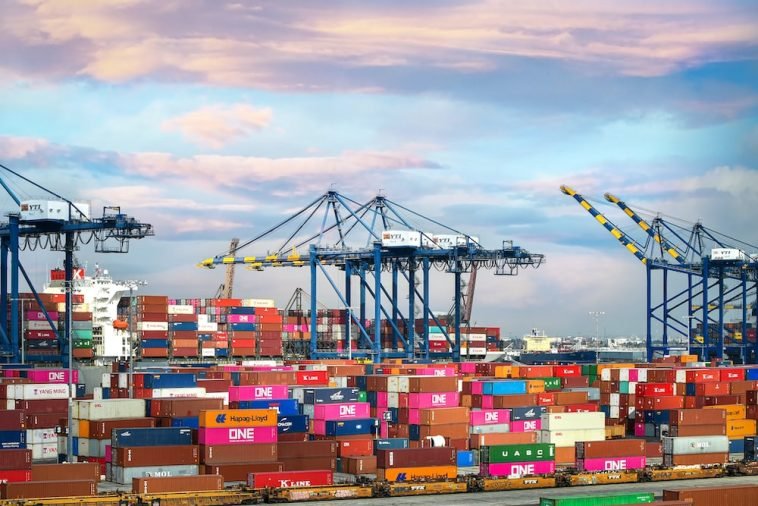Introduction.
Starting a logistics business in Nigeria is an exciting opportunity. With the growing demand for goods movement, both within the country and internationally, logistics is a vital part of Nigeria’s economy.
Whether you’re thinking about moving goods from one city to another, or setting up a warehouse to help companies store their products, logistics offers a wide range of business possibilities.
But how do you get started? What should you know before jumping into the logistics industry? This guide will walk you through the steps, from understanding the logistics market in Nigeria to practical tips for setting up your own business. It’ll also touch on common challenges you might face and how to overcome them.
By the end, you’ll have a clear idea of how to start your logistics business and what’s involved in making it successful.
The Logistics Industry in Nigeria
Nigeria, being one of Africa’s largest economies, is an important player in global trade. According to the World Bank, Nigeria’s trade to GDP ratio was 27.1% in 2022, showing that trade, including logistics, is a key part of the nation’s economic growth.
With the country’s population of over 200 million people, there’s a huge market for logistics services. People are always moving goods, whether it’s across the country or abroad.
Nigeria’s road network, ports, and airports provide the foundation for moving products, though there are challenges like poor infrastructure and traffic congestion that businesses in the logistics sector must deal with.
The good news is that Nigeria’s logistics sector is also evolving. Technology is playing a bigger role, and people are looking for quicker, safer, and more efficient ways to move goods. This opens up many opportunities for businesses that are willing to adapt and innovate.
Starting a logistics business now could position you to take advantage of these trends and be part of a growing market.
How Do I Start a Logistics Business in Nigeria?
Now, let’s look at the key steps you’ll need to follow to start your logistics business in Nigeria.
1. Do Your Market Research
Before you dive into the logistics business, you need to understand the market. What are the current trends?
Who are your competitors? What services do they offer, and how can you do it better? Start by looking at the types of logistics services in demand. These might include:
- Transport Services: Moving goods by truck, bike, or even boat.
- Warehousing: Storing products for businesses before they are shipped out.
- Customs Brokerage: Helping businesses navigate the complexities of importing and exporting.
- Courier Services: Delivering packages and small goods, often to consumers directly.
Understanding what people need will help you decide which specific part of the logistics industry you want to focus on.
2. Create a Business Plan
Once you’ve got a handle on the market, it’s time to write your business plan. This is where you’ll outline everything from your target market to your business goals and financial projections.
A solid business plan will give you direction and can help you secure funding from banks or investors. Make sure to include:
- Executive Summary: A brief overview of your business and the services you’ll offer.
- Market Analysis: Your research on the logistics industry in Nigeria, competitors, and your target market.
- Services Offered: What exactly will your business do? Will you focus on freight transportation or offer a variety of services?
- Financial Plan: This will include how much money you need to start your business, projected earnings, and expenses.
- Marketing Strategy: How will you reach your customers? This could include digital marketing, word-of-mouth, or even partnerships with other businesses.
3. Register Your Business
Before you can start operating, you’ll need to register your business with the Corporate Affairs Commission (CAC). This process involves choosing a unique business name, filling out necessary forms, and paying a registration fee.
You’ll also need to get a Tax Identification Number (TIN) from the Federal Inland Revenue Service (FIRS).
Depending on the type of logistics business you want to run, you may need other licenses or permits, such as transport permits for trucks.
4. Set Up Your Operations
Next, you’ll need to set up your operations. This includes getting the right equipment, whether it’s trucks, delivery vans, or warehouses.
If you’re focusing on warehousing, look for a location that’s easily accessible to both suppliers and customers.
If you’re running a transportation service, make sure to have reliable vehicles, and don’t forget to factor in maintenance costs.
Also, think about your team. You’ll need drivers, warehouse staff, office personnel, and perhaps customer service representatives. Hire people who are reliable and passionate about logistics – this can make a huge difference in how smoothly things run.
5. Build Relationships with Suppliers and Clients
In logistics, relationships are everything. To succeed, you’ll need to build strong partnerships with suppliers (like trucking companies or shipping firms) and clients.
Good relationships help ensure that you always have work coming in and that your clients are happy with your services.
To build these relationships, consider offering excellent customer service. Be reliable, and offer solutions that help make your clients’ lives easier. This will create trust and loyalty, which are essential for long-term success.
6. Use Technology to Your Advantage
Technology is changing the way logistics companies operate. From tracking shipments in real-time to optimizing routes for drivers, there are many tech tools that can help streamline your operations. You can invest in a transportation management system (TMS) or inventory management software to keep everything running smoothly.
With the rise of e-commerce in Nigeria, offering digital platforms that allow customers to book services online can give you a competitive edge.
7. Plan for Growth
As your logistics business starts to grow, you’ll need to think about scaling. How will you handle an increase in customers? Can your fleet handle larger volumes of goods? Will you need to hire more staff or expand your warehouse?
Growth means you’ll need more capital and resources, so it’s important to plan ahead and make sure you have the infrastructure to support it. Diversifying your services or expanding into new regions could also help you grow your business.
Challenges to Watch Out For
While starting a logistics business in Nigeria can be very profitable, it’s not without its challenges. Some common problems include:
- Poor Infrastructure: Roads can be in bad condition, especially in rural areas, which can delay deliveries.
- Traffic Congestion: Traffic in major cities like Lagos can be a major headache for logistics businesses.
- Regulatory Issues: Navigating the complex web of regulations in Nigeria can be time-consuming and costly.
- Security Concerns: Theft and vandalism are risks that logistics companies may face, particularly when transporting goods over long distances.
To handle these challenges, it’s important to plan ahead and stay flexible. Always have a backup plan and consider investing in insurance to protect your assets.
FAQS
1. How much capital do I need to start a logistics business in Nigeria?
The amount of capital required can vary depending on the type of logistics business you want to start. For a small-scale courier service, you might need less, but if you plan to run a trucking or warehousing business, you’ll need significant capital to buy vehicles or rent storage space.
2. Is the logistics business profitable in Nigeria?
Yes, the logistics business in Nigeria is quite profitable due to the growing demand for transportation and delivery services.
With the increase in e-commerce, logistics companies have opportunities to cater to businesses and consumers across the country.
3. Do I need a special license to start a logistics business?
Yes, you may need specific licenses depending on the type of logistics services you provide. For example, if you’re involved in freight transportation, you’ll need a transport license. Always check with relevant authorities like the Federal Road Safety Corps (FRSC) or local regulatory bodies.
4. Can I run a logistics business from home?
Yes, you can start a logistics business from home, especially if you’re focusing on courier or freight brokerage services. However, as you grow, you’ll likely need a physical office, storage space, or a fleet of vehicles.
Conclusion
Starting a logistics business in Nigeria is a great idea with a lot of potential, but it requires careful planning and understanding of the market. From building relationships to investing in technology, there’s a lot to consider.
But with hard work and the right approach, you can tap into a growing industry and create a business that thrives.
Are you ready to take the leap into the logistics world and make your mark in this exciting industry?





GIPHY App Key not set. Please check settings